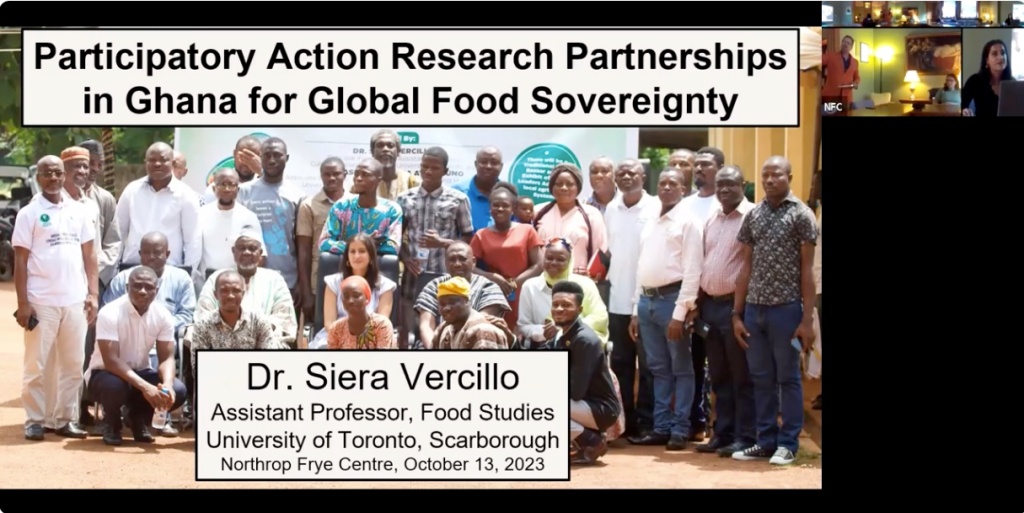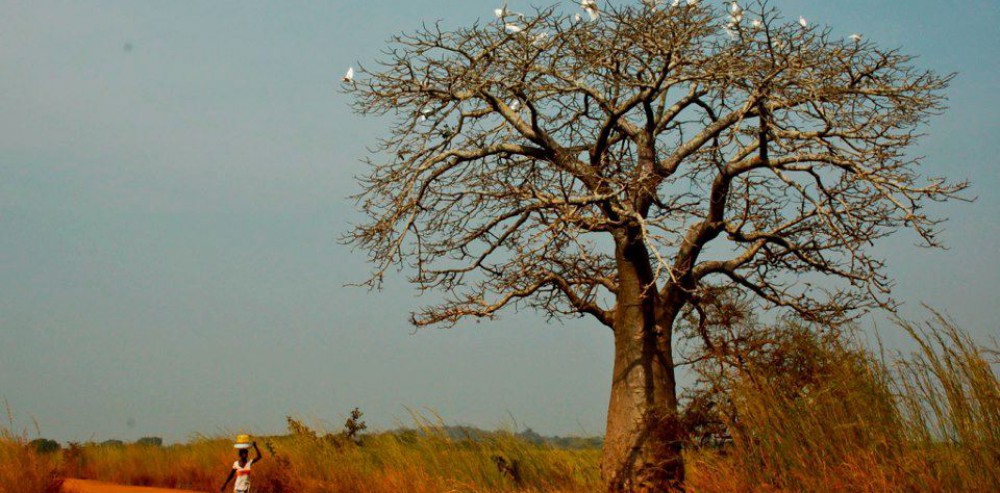If you are interested in learning more about the action research partnerships we are building in Ghana for food sovereignty, here is a recording of a recent talk I gave.
Link here: https://www.youtube.com/watch?v=5AHt6Cul1Ds&t=3115s&ab_channel=NorthropFryeCentre
The unprecedented state of global hunger is exposing the fragility of food systems, which are the political economic processes and infrastructures that feed people. This fragility is caused by systems that privilege the commodification of food and profit over ecological sustainability and equity. For decades, scholarship has demonstrated how the agricultural development approaches of the Green Revolution focused on intensifying yields across the Global South, generally degrade soil, decrease biodiversity and increase debt burdens, trapping smallholders in poverty. This trapping inhibits smallholders’ household food security and adaptive capacity to climate change. A donor evaluation recently demonstrated that food insecurity has intensified across the African countries currently targeted for the Green Revolution like Ghana, which is inciting resistance across the continent.
Major alternatives to the African Green Revolution generally advocate for food sovereignty, which is the right of people to define their own food systems instead of corporations, so that healthy, diverse, delicious and culturally appropriate food is more accessible. In this presentation, I will illustrate how we as scholars are supporting Ghanaian partner organizations’ efforts towards food sovereignty using grounded, participatory action and interdisciplinary research into agroecology and disappearing indigenous culinary ingredients as alternatives to the African Green Revolution. Learning from food sovereignty movements such as these partners’ efforts has the power to transform notions of who holds expertise and how change can happen.
Preserving and promoting local food production and culinary knowledge and practices for climate change adaptation and resistance to unjust political economic power dynamics can provide more sustainable incomes than those that privilege productivity.

